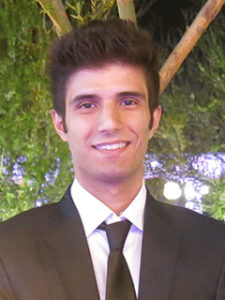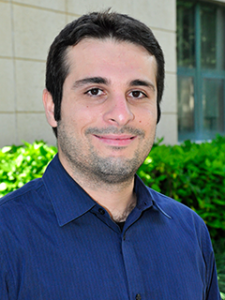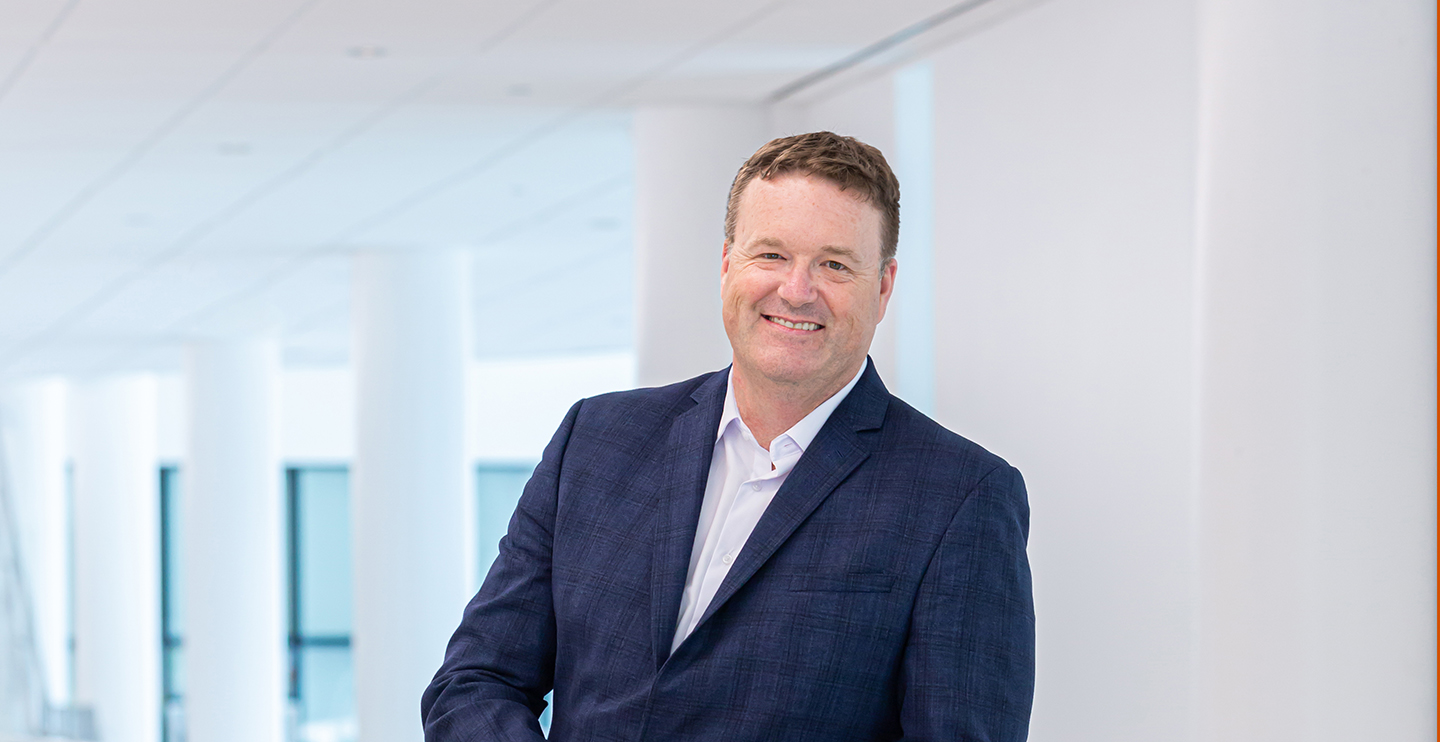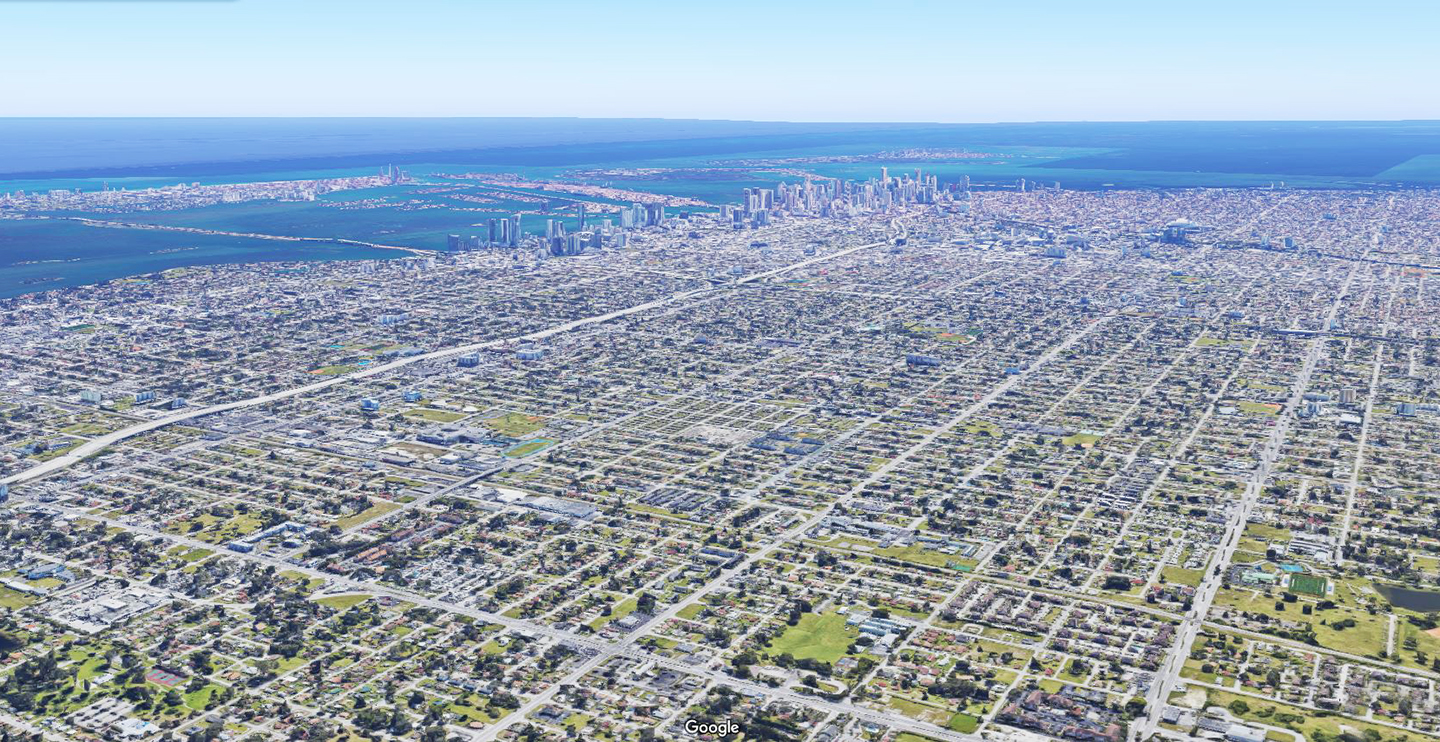When David Chapman was hired by the University of Miami last summer, the expert in artificial intelligence, computer vision, and machine learning had no idea he’d spend part of his first year at the U learning about the composition of concrete.
Chapman was part of a wave of new recruits who were encouraged to push data science and artificial intelligence/machine learning (AI/ML) techniques out across the University. The collaborative mandate was built into Chapman’s hiring: he has a joint appointment between the Frost Institute for Data Science & Computing (IDSC) and the College of Arts and Sciences’ Department of Computer Science.
But Chapman has ventured beyond those departments and is now collaborating with the College of Engineering’s Department of Civil & Architectural Engineering to create algorithms to better identify micro-cracks in concrete. The engineering team had already been using a state-of-the-art micro-CT scanning device to create internal 3D maps of concrete that can measure cracks as small as five micrometers, but they’ve mostly been analyzing the images by hand—a time-consuming, laborious endeavor. That’s where Chapman came in. After spending years training computers to identify lung cancer from CT scans, he is now training computers to differentiate potentially catastrophic cracks in concrete from benign, naturally occurring voids in the material. “I certainly don’t understand the science behind concrete, but it’s good to work with people who do,” Chapman said.
 Sadegh Tale, a PhD student in the University’s Advanced Infrastructure Materials Research Laboratory who started the concrete research project, said Chapman’s assistance has been critical to speed up and improve the work they’re doing. And time is of the essence given the collapse of a pedestrian bridge at Florida International University in 2018 that killed six people and the residential building collapse in Surfside, FL, in 2021 that killed nearly 100 people. Ever since, researchers have been studying the problem and publishing papers analyzing large cracks in concrete. Tale hopes that his research, which is being overseen by Ali Ghahremaninezhad (pictured at left), an Associate Professor of Engineering, and his new mentorship under Chapman can take their research down to the micro level to allow engineers to identify trouble spots early.
Sadegh Tale, a PhD student in the University’s Advanced Infrastructure Materials Research Laboratory who started the concrete research project, said Chapman’s assistance has been critical to speed up and improve the work they’re doing. And time is of the essence given the collapse of a pedestrian bridge at Florida International University in 2018 that killed six people and the residential building collapse in Surfside, FL, in 2021 that killed nearly 100 people. Ever since, researchers have been studying the problem and publishing papers analyzing large cracks in concrete. Tale hopes that his research, which is being overseen by Ali Ghahremaninezhad (pictured at left), an Associate Professor of Engineering, and his new mentorship under Chapman can take their research down to the micro level to allow engineers to identify trouble spots early.
 “While I possess some experience in machine learning, we believe that collaborating with IDSC and Dr. Chapman greatly benefited us by providing expert advice and enhancing our models,” said Tale, who was named an IDSC Fellow last year (2022-2023).
“While I possess some experience in machine learning, we believe that collaborating with IDSC and Dr. Chapman greatly benefited us by providing expert advice and enhancing our models,” said Tale, who was named an IDSC Fellow last year (2022-2023).
IDSC Director Nick Tsinoremas said that kind of collaboration has already established Chapman as one of the “core faculty” members of the IDSC team. “In his first year here at UM, David has had an outstanding and significant impact,” Tsinoremas said. “He has developed multiple interdisciplinary collaborations around the University and I am very intrigued by the collaboration with Dr. Ghahremaninezhad to identify micro-cracks in concrete, a previously not-very-well studied topic.”
For Chapman, the concrete work has been just one piece of his ever-increasing portfolio of teaching and research assignments. His core research effort since joining the U focuses on finding new ways to make machine learning algorithms more robust and reliable to unexpected real-world inputs. He has taught two classes (“Algorithm Design and Analysis” and “Python for Scientists and Grad Students”) and will teach a class called “Computer Vision with Deep Learning” in the fall. And, he co-authored five research papers over his first year that reveal new techniques to use computers to identify everything from tuberculosis to COVID-19 to astronomical images.
In March, Chapman participated in a panel at the Smart Cities Miami Conference discussing emerging technologies that will define smart cities of the future. And in May, Chapman was named a Knight Foundation Chair in Data Science and AI at IDSC, a role that allows him to preach the gospel of data science far beyond the University campus. “I expect more outreach where we get to talk about data science and meet people who are interested in working on important problems,” he said.
Put together, Chapman has had little time to take a breath during his busy first year at UM. “It took me a little bit of time to figure out which new projects to take on, because there are so many problems where AI and image analysis are important,” he said. “There’s a challenge in terms of finding the right balance. But I feel good about how far we’ve come on these projects and about the future potential that it’s going to lead to.”
Chapman said he’s also learning to love his new home. The child prodigy who defended his PhD thesis in computer science at age 24 at the University of Maryland, Baltimore County (UMBC), said he spends most of his time in South Florida inside his lab. But he’s fallen in love with Cuban food and snuck out for a trip to the Everglades when his family visited over the holidays. “There were alligators on the sidewalk,” he said. “It was quite exciting.”
Tags: Ali Ghahremaninezhad, Concrete Micro-Cracks, David R. Chapman, Knight Foundation Junior Chair of Data Science and AI, Sadegh Tale



